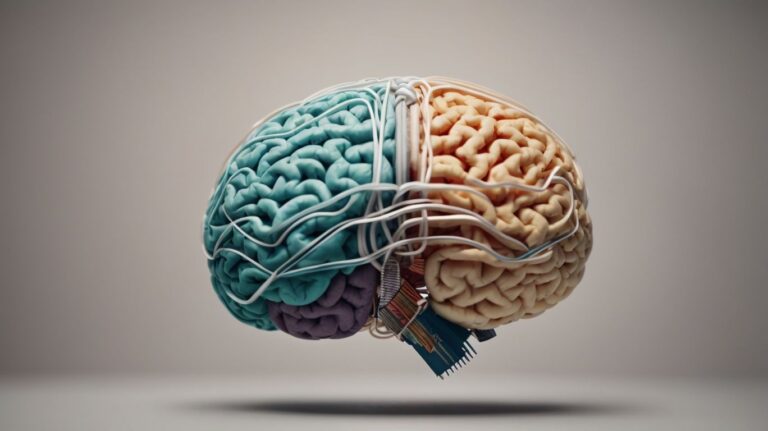Social psychology is a fascinating field that delves into the complexities of human behavior and the influence of social factors.
In this article, we will explore the major theories in social psychology, including Social Identity Theory, Social Exchange Theory, and Social Learning Theory, among others. We will also discuss how these theories explain human behavior, touching on topics such as social groups, decision making, and interpersonal relationships.
We will examine how these theories apply in real-life situations, providing insight into the practical implications of social psychology. Join us as we unravel the mysteries of human behavior and social interaction.
Contents
- 1 Key Takeaways:
- 2 What is Social Psychology?
- 3 What Are the Major Theories in Social Psychology?
- 4 How Do These Theories Explain Human Behavior?
- 5 How Do These Theories Apply in Real Life?
- 6 Frequently Asked Questions
- 6.1 What is social psychology and why is it important?
- 6.2 What are theories in social psychology and why are they necessary?
- 6.3 How do researchers explore theories in social psychology?
- 6.4 What are some common theories in social psychology?
- 6.5 Can theories in social psychology be disproven or changed?
- 6.6 How can understanding theories in social psychology be applied in real life?
Key Takeaways:
What is Social Psychology?
Social psychology explores the interactions, influences, and behaviors of individuals within social contexts, diving into the dynamics of social learning, impression management, conformity, obedience, compliance, and the impact of authority figures on human behavior. It also examines the role of persuasion and cognitive intrapersonal perspectives in shaping social interactions, drawing from theories such as symbolic interactionism and various research perspectives.
Social psychology offers valuable insights into how individuals are influenced by their social environment and the behaviors of others. This field sheds light on the processes through which people’s thoughts, feelings, and actions are shaped by the presence or actions of others.
Behavior theories, such as the social cognitive theory and the social identity theory, provide frameworks for understanding how individuals’ behaviors are influenced by their perceptions of themselves within different social groups.
What Are the Major Theories in Social Psychology?
Social psychology encompasses a diverse range of major theories that contribute to the understanding of human behavior in social contexts, including social identity theory, social exchange theory, social learning theory, cognitive dissonance theory, social comparison theory, self-evaluation maintenance theory, attribution theory, social penetration theory, social impact theory, and evolutionary theory.
Social Identity Theory
Social Identity Theory, proposed by Henri Tajfel and John Turner, delves into the influence of social groups on individual behavior and the formation of identity, shedding light on intergroup relations, stereotypes, and the impact of group membership on personal perceptions and actions.
The central tenet of Social Identity Theory revolves around the concept of individuals deriving a sense of self from the groups to which they belong, leading to a profound impact on their attitudes and behaviors. The theory underscores the significance of group membership in shaping one’s identity, values, and attitudes, and how this identification with a particular social group can lead to intergroup biases and conflicts.
The theory elucidates how individuals strive to enhance the status and distinctiveness of their in-group, often at the expense of out-groups, thereby contributing to the formation of stereotypes and discriminatory behaviors. It explores the processes through which individuals engage in social comparison, seeking to boost their self-esteem by favorably comparing their in-group with out-groups, further heightening intergroup tensions.
Social Exchange Theory
Social Exchange Theory, developed by George Homans and Peter Blau, focuses on the rational analysis of social interactions, emphasizing the role of motivation and decision-making in assessing the potential gains, costs, and reciprocities involved in interpersonal relationships and exchanges.
The theory posits that individuals engage in social relationships based on the expectation of rewards and outcomes, and they weigh the benefits against the costs in decision-making processes.
It also highlights the role of reciprocity and the expectation of mutual benefit in fostering and maintaining relationships. Furthermore, power dynamics are considered, as they influence the negotiation of terms within social exchanges.
Social Exchange Theory provides valuable insights into human behavior, offering a framework to understand the complexities of social interactions and relationships.
Social Learning Theory
Social Learning Theory, pioneered by Albert Bandura, explores the process of learning through observation and modeling, shedding light on how individuals acquire and exhibit behaviors through observational learning, as demonstrated in the influential Bobo doll experiment.
Bandura’s theory emphasizes the role of cognitive processes in observational learning, highlighting the significance of attention, retention, reproduction, and motivation in the acquisition of new behaviors.
The theory also underscores the influence of role models and the impact of their behavior on the social learning process, providing valuable insights into how individuals imitate and internalize observed actions.
Social Learning Theory encompasses the concept of vicarious reinforcement, where individuals are motivated to imitate behaviors based on the consequences experienced by the model, contributing to a deeper understanding of behavioral acquisition and manifestation.
Cognitive Dissonance Theory
Cognitive Dissonance Theory, formulated by Leon Festinger, delves into the discomfort arising from conflicting beliefs or behaviors, highlighting the role of perception and cognition in motivating individuals to alleviate dissonance through various cognitive and behavioral adjustments.
This theory brings forth valuable insights into human behavior, shedding light on how individuals strive for internal consistency and coherence.
It underlines the impact of cognitive dissonance on decision-making, judgment, and attitude change. Festinger’s theory also accentuates the significance of self-justification and persuasion in reducing dissonance, elucidating the intricate processes involved in modifying attitudes or beliefs to minimize discomfort.
Social Comparison Theory
Social Comparison Theory, developed by Leon Festinger, explores the mechanisms of self-evaluation through comparison processes, elucidating how individuals engage in upward and downward comparisons to assess their abilities, traits, and standing in relation to others.
By understanding this theory, one can comprehend the vital role of social contexts in shaping individuals’ behavior and self-perception.
It sheds light on the impact of comparison information, such as social media, on one’s self-concept and self-esteem. Moreover, Leon Festinger’s theory underscores the tendency of individuals to seek out similar others to compare themselves with, influencing their aspirations and behaviors.
Self-Evaluation Maintenance Theory
Self-Evaluation Maintenance Theory, proposed by Tesser and Campbell, investigates the impact of social relationships on self-reflection and performance, shedding light on how individuals manage their self-evaluation in relation to significant others and their accomplishments.
This theory underscores the significance of individuals in not only evaluating their own abilities and achievements but also in considering their connections to others.
It involves understanding how people navigate the delicate balance between their own successes and those of the people close to them.
The theory also highlights the intricacies of managing one’s self-concept within the backdrop of interpersonal relationships, delineating how individuals maintain their self-evaluation in the presence of others.
It delves into the complexities of comparison, competence, and closeness within social interactions.
Attribution Theory
Attribution Theory, advanced by Fritz Heider and later developed by Bernard Weiner, examines the process of attributing causality to behaviors and events, highlighting the significance of internal and external attributions in shaping individuals’ explanatory styles and perceptions.
Attribution theory provides a framework for understanding how individuals perceive and interpret the actions of themselves and others. It delves into the complexities of human behavior, shedding light on how people make sense of the world around them.
By exploring the dimensions of attribution, both personal and situational factors come under scrutiny, influencing the attributions people make and subsequently shaping their responses.
Social Penetration Theory
Social Penetration Theory, proposed by Altman and Taylor, delves into the dynamics of relationship development, emphasizing the roles of depth, breadth, and self-disclosure in the gradual process of social penetration and interpersonal closeness.
The theory posits that as individuals engage in deeper and more intimate conversations, they gradually reveal their inner layers, leading to increased closeness and relational bonding. This process involves the gradual exchange of personal information, feelings, and thoughts, ultimately leading to a more profound understanding of each other.
Social penetration not only allows individuals to connect on a deeper level but also plays a crucial role in shaping the dynamics of relationships, fostering empathy, trust, and intimacy.
Social Impact Theory
Social Impact Theory, formulated by Bibb Latané, explores the factors that influence the impact of social structures and interactions, emphasizing the roles of the number of sources, strength, and immediacy in shaping the magnitude of social influence and behavioral responses.
This theory delves into the intricate web of social dynamics, shedding light on how individuals’ behaviors are influenced by the collective forces of society.
A key insight of Social Impact Theory is that as the number of people exerting the influence increases, the impact becomes stronger, especially when the sources are close in proximity and connection. This reveals the profound significance of social influence in shaping attitudes, decisions, and actions, thereby shaping the fabric of society.
Evolutionary Theory
Evolutionary Theory in social psychology examines human behavior through the lens of evolutionary principles, emphasizing the adaptive significance of behaviors, mating strategies, and parental investment, drawing insights from the framework of natural selection and evolutionary psychology.
Evolutionary Theory provides a comprehensive understanding of how evolutionary processes have shaped human behavior and cognition. This approach highlights the role of genes and environment in guiding human behavior, shedding light on the universality and variability of behavioral patterns across cultures.
It helps in elucidating patterns such as cooperation, aggression, and social hierarchy, offering valuable explanations for their existence based on survival and reproductive advantages. Evolutionary Theory delves into how human behaviors are adaptive responses to challenges encountered throughout evolutionary history, facilitating a deeper comprehension of contemporary social dynamics and individual interactions.
How Do These Theories Explain Human Behavior?
The major theories in social psychology offer diverse explanations for human behavior, encompassing the influence of social groups, motivational processes, decision-making mechanisms, perceptual and cognitive frameworks, intergroup dynamics, and the evolutionary underpinnings of behavioral adaptation.
Influence of Social Groups
The theories in social psychology shed light on the profound influence of social groups on individual behavior, encompassing the dynamics of social identity, intergroup relations, conformity, and obedience, unveiling the intricate mechanisms through which social environments shape human actions and decisions.
Social identity, a pivotal element in these dynamics, reflects the individual’s sense of belonging to a particular group and the emotional significance attached to this association.
Intergroup relations, on the other hand, explore the complexities of interactions between different social groups, encompassing competition, cooperation, prejudice, and discrimination.
Conformity and obedience, essential components of social behavior, demonstrate the powerful impact of group norms and authority figures on individual actions, providing insight into the pervasive influence of social groups on human conduct.
Motivation and Decision Making
The theories in social psychology offer insights into the motivational and decision-making processes underlying human behavior, drawing from the principles of social exchange theory, cognitive dissonance theory, social learning theory, and evolutionary perspectives to illuminate the multifaceted dynamics of motivation and decision-making in social contexts.
Social exchange theory emphasizes the idea that individuals engage in relationships and interactions where the benefits outweigh the costs.
It delves into the concept of reciprocity and the rational calculations individuals make when deciding whether to engage in certain social exchanges.
Cognitive dissonance theory explores the discomfort individuals feel when they hold conflicting beliefs or attitudes.
This discomfort motivates them to reduce the dissonance by altering their attitudes or behaviors to bring them in alignment, ultimately impacting their decision-making processes.
Furthermore, social learning theory posits that individuals learn through observation and modeling of others’ behavior.
This leads to the internalization of social norms and values, influencing their motivational and decision-making processes as they adopt behaviors they have observed.
Considering evolutionary perspectives, the emphasis lies on the ways in which human behavior and decision-making are shaped by evolutionary adaptations.
This encompasses factors such as mate selection, cooperation, and competition, all of which play pivotal roles in influencing human behavior.
Perception and Cognition
The theories in social psychology delve into the intricacies of perception and cognition, drawing from attribution theory, social impact theory, and evolutionary perspectives to elucidate the cognitive processes and perceptual frameworks that influence human behavior and social responses.
Attribution theory sheds light on how individuals interpret and assign causes to events and behaviors, shaping their perceptions and subsequent responses.
Meanwhile, social impact theory examines the influence of others on an individual’s behavior, emphasizing the role of social forces and group dynamics in shaping cognition and behavior.
Together, these theories provide a comprehensive framework for understanding the underlying mechanisms of human behavior, encompassing both individual and social dimensions.
Interpersonal Relationships
The theories in social psychology provide valuable perspectives on interpersonal relationships, leveraging insights from social exchange theory, social penetration theory, self-evaluation maintenance theory, and evolutionary perspectives to elucidate the dynamics of relationship development, self-disclosure, and adaptive behaviors within social interactions.
Social exchange theory delves into the give-and-take dynamics of relationships, emphasizing the mutual benefits accrued through interactions.
In parallel, social penetration theory explores the gradual unfolding of intimacy in stages, representing the depth of interpersonal relationships.
Self-evaluation maintenance theory sheds light on how individuals manage their self-esteem within relationships, balancing close connections with personal achievements.
Evolutionary perspectives highlight intrinsic drives and evolutionary advantages that shape our behavior in forming and maintaining meaningful connections.
Cultural and Environmental Factors
The theories in social psychology offer nuanced understandings of the influence of cultural and environmental factors on human behavior, drawing from the principles of social learning theory, attribution theory, and social impact theory to illuminate the multifaceted interactions between cultural contexts, environmental stimuli, and human responses.
These theories delve into the complexities of how individuals are shaped and influenced by the societies and environments in which they reside.
Social learning theory, for instance, underscores the significance of observing and modeling behaviors, emphasizing the role of cultural norms and practices in shaping individual conduct.
On the other hand, attribution theory sheds light on how cultural and environmental factors impact the perception and interpretation of events, influencing the attributions individuals make about the behaviors of themselves and others.
Social impact theory elucidates the dynamics of social influence within cultural and environmental settings, highlighting the varied levels of impact that different sources of influence can exert on individuals.
It emphasizes the interplay between cultural norms, environmental cues, and the strength and immediacy of the influence, showcasing how these factors collectively shape human behavior.
How Do These Theories Apply in Real Life?
The major theories in social psychology find practical applications in real-life scenarios, offering insights into the dynamics of social influence, behavior, conformity, obedience, persuasion, the impact of authority figures, and the management of impressions in various real-world contexts.
Frequently Asked Questions
Social psychology is the scientific study of how people think, feel, and behave in social situations. It helps us understand how individuals are influenced by their social environment and how they in turn influence the people around them. This knowledge is important for addressing social issues and improving relationships between individuals and groups.
Theories in social psychology are explanations for why certain social phenomena occur. They help us make sense of complex human behavior and provide a framework for conducting research. They are necessary because they guide our understanding of social interactions and allow us to make predictions about future behaviors.
Researchers explore theories in social psychology by designing experiments and conducting surveys, observations, and interviews. This allows them to collect data and test the validity of the theory. They also review existing research and conduct meta-analyses to synthesize findings from multiple studies.
Some common theories in social psychology include social identity theory, cognitive dissonance theory, and social exchange theory. Social identity theory explains how individuals define themselves in relation to social groups. Cognitive dissonance theory explores how people deal with conflicting thoughts and beliefs. Social exchange theory examines the costs and rewards of social interactions.
Yes, theories in social psychology are constantly evolving and can be disproven or changed based on new research and evidence. This is why it is important for researchers to constantly test and refine theories in order to better understand human behavior and social interactions.
Understanding theories in social psychology can help us navigate and improve our relationships and interactions with others. It can also inform interventions and strategies for addressing social issues such as prejudice, discrimination, and conflict resolution. Additionally, businesses can use this knowledge to understand consumer behavior and improve marketing strategies.





